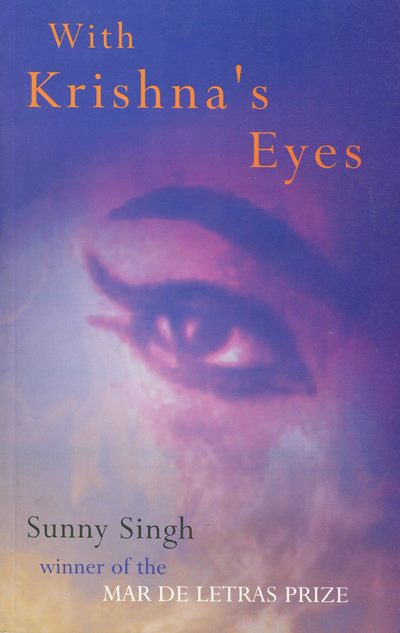Sunny Singh

Krishna has been in New York, making documentaries. But, following the death of her grandmother, Krishna returns to her home village in a part of India so feudal, almost medieval in its ways, that, in spite of her essential urbanity and modernity, she must make concessions to tradition. A strange bequest awaits Krishna upon her return. From beyond the grave, Dadiji directs Krishna to enact her dharma (duty), which, it transpires, is to document on film the last days of Damayanti, a strong-minded lawyer who, upon the death of her husband, will commit sati.
Krishna, the “warrior” and the first girl child to be born to her family in five centuries, finds herself caught between the modern world of loose ties and casual relationships (as personified by her westernised lover, Natchek), and the older ties of blood and obligation, where honour transcends love. Always a rebel, Krishna has to confront the fact that her dharma comprises an act as conforming and backward as it is subversive…
‘Sunny Singh’s first novel Nani’s Book of Suicides was dominated by the narrator’s Nani (maternal grandmother), tormenting her with ‘stories of times gone by’, emphasizing the Rajput sense of honour. In Singh’s second novel With Krishna’s Eyes the protagonist, Krishna, loves her ‘Dadiji’ (paternal grandmother), who has her own concept of honour. In a society where female infanticide and foeticide is rampant, the old woman prays and conducts sacrifices for the birth of a daughter to her eldest son. She believes that a girl should have the same educational opportunities as a boy; when Krishna wants to go to New York for film studies, she encourages her. When she dies, she leaves detailed instructions for Krishna: she is to make a documentary of the last days of Damayanti, a lawyer, who is planning to commit sati. Krishna has to go back to her feudal roots, yet fulfil her aspirations as a modern woman. The novelist presents a vivid picture of rural India, and the villagers’ faith in their feudal master.’ Journal of Commonwealth Literature
‘The rich anecdotes and colour provide profound insight into family loyalty, the heavy weight of the past and the encounter with tradition. The emotion of rediscovering one’s roots and the demand for a return to a traditional lifestyle, threatened with extinction by political correctness. Krishna is a young woman searching for her identity while being faithful to the values of her time. The novel is entirely credible and contains characters so well painted that they are genuinely truthful.’ ABC
‘The author succeeds as a successful Bollywood film does. One is eager to reach the climax. Krishna, torn between the rebel and the traditional, the disgust of what her family and clan so strongly believes in and the fear of losing them all, feels so real that one could almost touch her.’ Marie Claire
Sales
- Rupa Books India
- Ediciones El Cobre Spain
- Editions Philippe Picquier France
- L’Ancora del Mediterraneo Italy
- Mono I Manjana Serbia
Material: finished copies of Indian and Spanish edition (293pp)